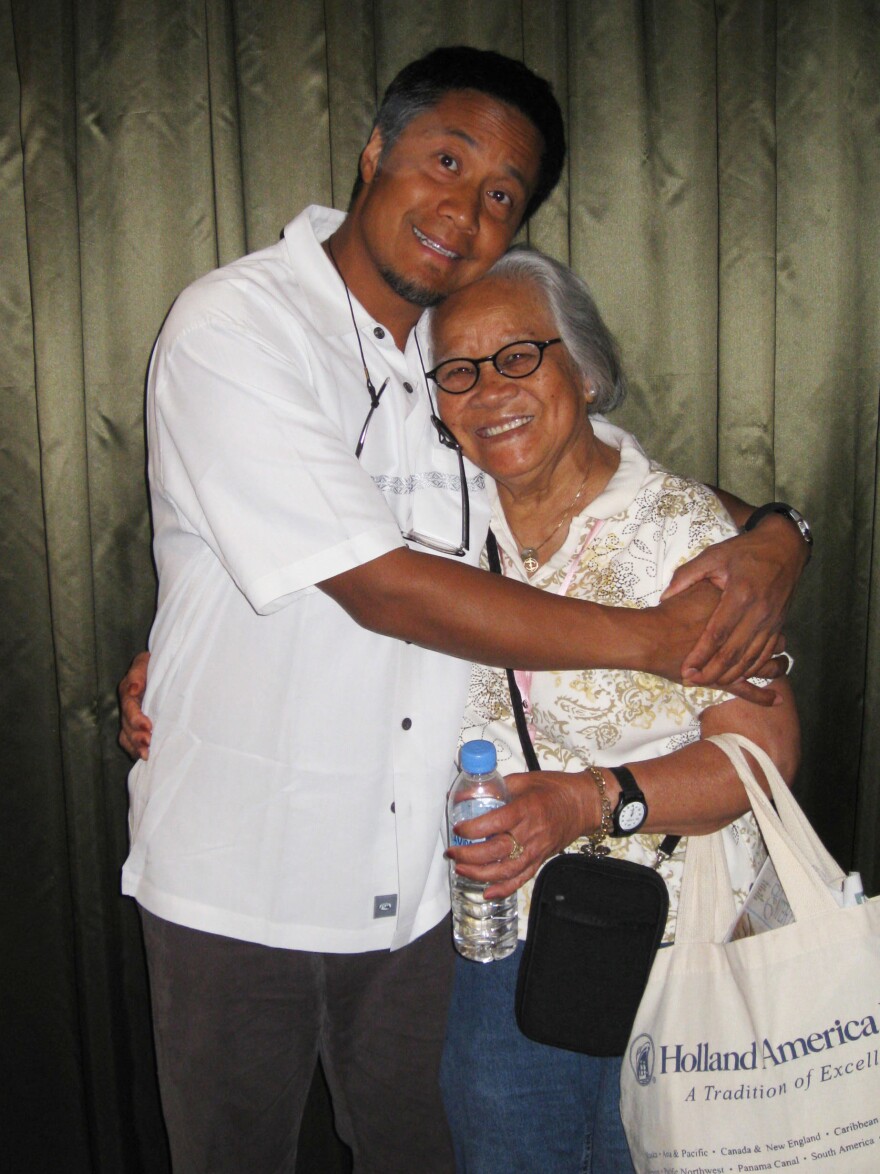Journalist Alex Tizon carried a secret his whole life.
"She lived with my family for 56 years. She raised me and my siblings, and cooked and cleaned from dawn to dark — always without pay," Tizon writes in an upcoming cover story in The Atlantic. "I was 11, a typical American kid, before I realized she was my family's slave."
Lola was a domestic servant who had been with Tizon's family going back a whole generation. His family brought her with them when they immigrated to the U.S. in 1964 from the Philippines. From the outside she looked like part of the family. The reality was that Lola was forced to sleep in hallways or storage spaces. She was not allowed to go back to the Philippines to see her family, and she was isolated from the world. She worked from dawn until dark, and she took verbal abuse from both parents.

Tizon struggled with this dark part of his family's past his entire life and was finally able to put Lola's experience into his own words. But the author died unexpectedly of natural causes at the age of 57 on March 23.
Atlantic editor Jeffrey Goldberg tells NPR's Rachel Martin that Lola came to live with the Tizons after Alex's grandfather gave her to Alex's mother as a gift.
"This is all back in the Philippines. Lola came with them to America, stayed with them as in essence the family slave and then Alex essentially — and I use this word advisedly — but Alex inherited her from his dying mother," Goldberg says.
Interview Highlights
On Lola's relationship with the Tizons

One of the interesting things here to me is that she wasn't a captive, per se — she wasn't in chains, she wasn't locked away. She could have [left], but she couldn't have, and that's sort of the point of the story. From a very early age, she worked for this family without pay, she lived with this family. When the family moved to America, it was only natural that she would go with them — but she was a slave until the day she died.
On Lola's feelings toward the Tizons
I think Lola loved the family — certainly loved the children of the family. The feelings toward the parents are probably more complicated. I think Alex and his siblings were overwhelmed by some combination of love, guilt — a very, very complicated emotional package here.
On the reach of Lola's story in Tizon's family
One of the reasons it's so hard to get this story out was he had to confront the true nature of his mother and the true nature of his father and this terrible and terrifying arrangement that they had acquiesced to — that they benefited from for decades. And so imagine you're the writer and you want to tell this story of the woman who essentially raised you and you realize that in telling this story, you're telling another story about his mother and her acute moral failings.
Morning Edition editor Jacob Conrad and Web producer Heidi Glenn contributed to this story.
Copyright 2021 NPR. To see more, visit https://www.npr.org. 9(MDAxODg3MTg0MDEyMTg2NTY3OTI5YTI3ZA004))




